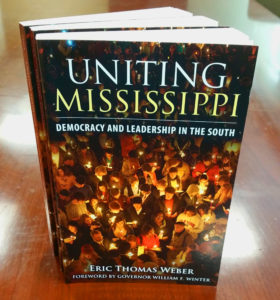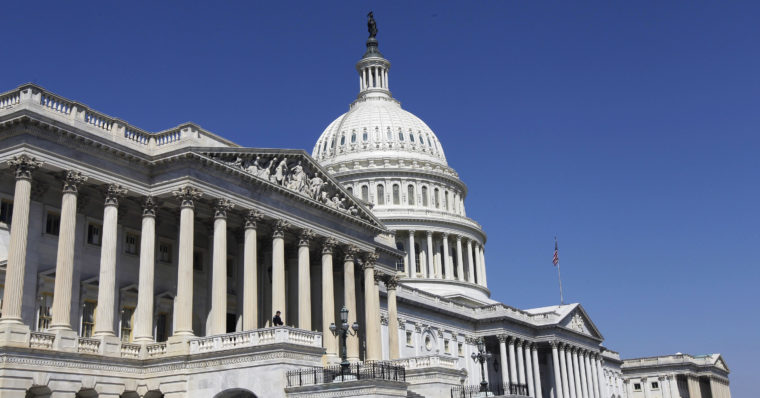Originally published in The Clarion Ledger, September 6, 2015, 2C

Click for a printable PDF scan.
Mississippians have been entangled in a deep philosophical debate about education funding for months, though attention has focused largely on technical details. Ballot initiative 42 that will be decided this November asks: “Should the state be required to provide for the support of an adequate and efficient system of free public schools?” If voters pass the initiative, they would be demanding an amendment to the state Constitution making that requirement explicit.

People who want voters to choose “yes” explain that such a requirement should be enforceable in the courts. Without that, a parent would have no recourse when his or her child must attend a chronically underfunded and failing school.
In their involvement of the courts, the proponents of 42 have made a crucial move for taking Mississippians’ educational obligation seriously. As the Legislature has continually failed to fund education even to the level of basic adequacy, the proponents of 42 are right to demand a check on that negligence.
The Legislature proposed an alternate initiative, 42A, which asks: “Shall the Legislature be required to provide for the establishment and support of an effective system of free public schools?” On the surface, that sounds sensible, as it is the Legislature’s responsibility to allocate proper funding. If we obligate the state instead, however, then it makes sense that the courts would be able to protect citizens’ rights, forcing the state to fulfill its obligations. 42A omits reference to the courts and calls for an “effective system of free public schools upon such conditions and limitations as the Legislature may prescribe.”
The problem people have is with the Legislature. We have had budget surpluses and contributed hundreds of millions of dollars to a rainy day fund. Officials have additionally been proposing tax cuts. At the same time, the Legislature continues to severely underfund public education.
The critics of 42A are on to something when they point out that the Legislature already has the control that the alternate initiative has in mind.* 42A amounts to a rejection of the idea that the Legislature should be checked and held accountable in the courts when it fails to fully fund education. In that sense, it denies that the people of Mississippi have a real obligation to provide access to an adequate education for all our citizens.
Given the confusing technical details of the two proposals, it is vital that we consider seriously whether and why we have the obligation that 42 suggests. That philosophical question is crucial, since if we have such an obligation, it cannot be optional and contingent on the Legislature’s fluctuating will.
When the state has an obligation, citizens have corresponding rights. If we believe we have an obligation to provide access to an adequate education, we must give people a meaningful mechanism for recourse when the state fails to fulfill its obligation.
No one has seriously denied the idea implicit in initiative 42 — that the citizens of Mississippi should support and provide access to a free and adequate public education for all of our young people. We should consider the question for the sake of argument, however, because it illustrates why 42A falls short of meaningful reform. What reasons can we give to an imagined skeptic of our obligation to provide adequate, if not good or excellent, public education?
There are many reasons, but four stand out:
• Self-governance requires education. According to Thomas Jefferson, education is essential for democracy. It is necessary for wise governance, for peace, and for political legitimacy.
• Education for all is a requirement of equal citizenship. Mississippi has a troubled history. Today, reasonable and responsible officials rightly explain that those parts of our history are not what Mississippi values anymore. After James Craig Anderson was killed in a racially motivated murder in Jackson, U.S. Attorney John Downy argued that “the actions of these defendants who have pled guilty… do not represent the values of Mississippi in 2012.” I agree. At the same time, in the 44 Mississippi school districts that were labeled “dropout factories” in 2007, only a small portion of the students we were failing were white. Overwhelmingly those schools are made up student bodies 75-100 percent of which are minority kids.
• Inadequate education is one of the most powerful forms of oppression. Eighty percent of people incarcerated in the U.S. have not graduated from high school. As so many of our schools have been failing or at-risk of failing, we have been perpetuating the history that we say we want to leave behind. Republicans and Democrats from all over Mississippi are sick and tired of these impediments to the state’s progress. Educational failure is one of our most obstructive problems. To redress our history of injustice and our present challenges, we must stop accepting gross inadequacy that systematically holds our citizens back and reaps division, rather than unity.
• Expectations of responsibility depend upon personal development. In America and especially in Mississippi, we value personal responsibility. At the same time, we don’t demand rent from babies. We know that personal responsibility and self-respect are developed over time and through education. If we expect people to prize freedom and independence, we cannot assume that citizens are born as responsible adults. In youth, we are all dependent and in need of an education.
Education is both a necessity for democracy and a value in itself. If our government is intended to protect the pursuit of happiness, that protection must be extended to everyone. If we are obligated to ensure that all Mississippians are afforded at least an adequate education, furthermore, then we must provide the people with a mechanism for recourse when the state fails to fulfill its obligations. Rights and obligations are not optional, which is why we need the courts for their enforcement. That is also why 42 could lead to real progress in education and why we must choose it instead of more of the same failure.
Eric Thomas Weber is associate professor of Public Policy Leadership at the University of Mississippi and author of “Uniting Mississippi: Democracy and Leadership in the South” (Sept. 2015). He is representing only his own point of view. Follow him on Twitter @EricTWeber.
For a week or two, The Clarion Ledger will have the text version of the article on their Web site here.
* The original article included a next sentence here that was edited in such a way that did not capture what was intended. I have omitted the new version from the text here. You can still see it in the scan, however.
 Areas of interest and application for the course will include:
Areas of interest and application for the course will include: Democracy and Leadership: On Pragmatism and Virtue (Lanham, MD: Lexington Books, 2013)
Democracy and Leadership: On Pragmatism and Virtue (Lanham, MD: Lexington Books, 2013) Uniting Mississippi: Democracy and Leadership in the South (Jackson, MS: The University Press of Mississippi, 2015)
Uniting Mississippi: Democracy and Leadership in the South (Jackson, MS: The University Press of Mississippi, 2015) In addition, for those who are unfamiliar, I co-host the Philosophy Bakes Bread radio show & podcast that airs on WRFL Lexington, 88.1 FM and in the show we cover a number of public policy topics. Give it a listen!
In addition, for those who are unfamiliar, I co-host the Philosophy Bakes Bread radio show & podcast that airs on WRFL Lexington, 88.1 FM and in the show we cover a number of public policy topics. Give it a listen!










 What exactly is a “sharing city”? It’s one that encourages carsharing and bikesharing programs through specific policies, such as designating “pick-up spots” for ridesharing and altering local taxes to make carsharing more attractive. A sharing city is one that encourages urban agriculture on vacant lots and allows homegrown vegetables to be sold in the neighborhood. A shareable city supports innovations like shared workspaces, shared commercial kitchens, community-financed start-ups, community-owned commercial centers, and spaces for “pop-up” businesses. It also encourages home-based micro-enterprises by lowering permitting barriers.
What exactly is a “sharing city”? It’s one that encourages carsharing and bikesharing programs through specific policies, such as designating “pick-up spots” for ridesharing and altering local taxes to make carsharing more attractive. A sharing city is one that encourages urban agriculture on vacant lots and allows homegrown vegetables to be sold in the neighborhood. A shareable city supports innovations like shared workspaces, shared commercial kitchens, community-financed start-ups, community-owned commercial centers, and spaces for “pop-up” businesses. It also encourages home-based micro-enterprises by lowering permitting barriers.